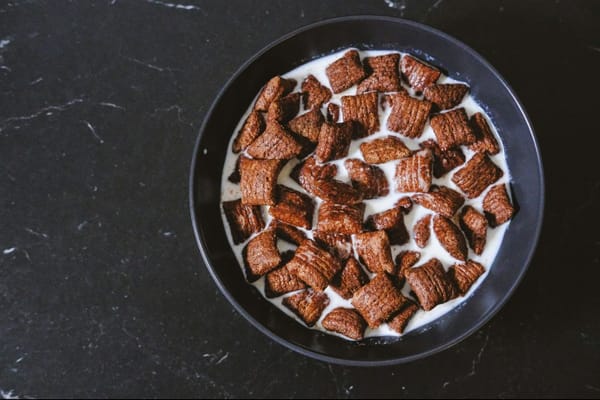We've all heard about the importance of fiber in our diets, but new research suggests that the benefits of fiber might be more personal than we thought. A recent study from Cornell University has shed light on how our individual gut microbiomes may influence the way we process fiber, particularly resistant starch. This discovery could change the way we think about dietary recommendations and pave the way for more personalized nutrition advice.
Key Takeaways
- A person's gut microbiome composition may determine how much they benefit from certain types of fiber.
- The study focused on resistant starch, a type of fiber found in foods like green bananas and potatoes.
- Not everyone experienced the same benefits from consuming resistant starch.
- Eating a variety of fiber-rich foods is still recommended for overall health.
- Future research may lead to more personalized fiber intake recommendations.
The Fiber-Gut Connection: A Closer Look
For years, we've been told to eat more fiber. It's good for digestion, helps maintain a healthy weight, and even lowers the risk of certain diseases. But what if the amount of fiber you need depends on the unique makeup of your gut bacteria?
Understanding Fiber and Its Benefits
Fiber is a type of carbohydrate that our bodies can't digest. Instead, it passes through our digestive system, providing numerous health benefits along the way[7]. These benefits include:
- Promoting regular bowel movements
- Lowering cholesterol levels
- Helping control blood sugar levels
- Aiding in weight management
- Reducing the risk of certain cancers
The current recommendation for daily fiber intake ranges from 19 to 30 grams, depending on age and gender. However, most Americans fall short, consuming only about 18 to 20 grams per day[6].
The Role of the Gut Microbiome
Our gut microbiome is a complex ecosystem of trillions of microorganisms living in our digestive tract. These tiny inhabitants play a crucial role in our overall health, influencing everything from our immune system to our mood[2].
When it comes to fiber, our gut microbes are the real stars of the show. They ferment fiber in our large intestine, producing beneficial compounds called short-chain fatty acids (SCFAs). These SCFAs have anti-inflammatory properties and can promote weight loss and cardiovascular health[6].
The Cornell University Study: A Game-Changer
The recent study from Cornell University, published in the journal Gut Microbes, has brought a new perspective to the fiber conversation. The researchers found that people responded differently to a high-fiber diet based on their unique gut microbiome[6].
Study Details
The study focused on resistant starch, a type of dietary fiber found in foods like green bananas and potatoes. Here's how the study was conducted:
- 59 participants were involved
- The study lasted seven weeks
- Participants ate crackers containing two types of resistant starch daily
- Fecal and saliva samples were collected before and after the study
Key Findings
The results were eye-opening:
- Initial gut microbiome composition predicted fiber benefits: Some participants experienced positive changes from resistant starch supplementation, such as enhanced gut microbial diversity and increased SCFA production. For others, the response was minimal[6].
- Digestible starch surprise: When participants consumed digestible starch after the resistant starch, they saw increased levels of SCFAs - a finding that surprised the researchers[6].
- Individual responses varied: The study showed that not everyone gains the same amount of benefit from consuming resistant starch[6].
Implications for Fiber Intake
This research suggests that a one-size-fits-all approach to fiber intake may not be the most effective strategy. Instead, a more personalized approach based on an individual's gut microbiome could be the way forward.
Current Limitations
While the study's findings are exciting, there are some limitations to consider:
- Currently, there's no easy way to test whether you would benefit from resistant starch supplementation outside of a research lab[6].
- Many tests can tell you what species are in your gut, but there's insufficient research to provide actionable tips to personalize your diet[6].
Future Possibilities
As the field of precision nutrition grows, we may see more personalized recommendations for fiber intake. This could mean focusing on specific types of fiber that benefit an individual, rather than striving for a high daily total[6].
Practical Tips for Optimizing Fiber Intake
While we wait for more personalized recommendations, there are still steps you can take to optimize your fiber intake:
- Eat a variety of fiber-rich foods: Don't rely on just one type of fiber. Include a mix of fruits, vegetables, whole grains, and legumes in your diet[6][8].
- Focus on whole foods: Instead of supplements, get your fiber from real food sources[6].
- Make simple swaps: Replace refined grains with whole grains, and incorporate more fruits and vegetables into your meals[6].
- Try smoothies: They're a quick and easy way to boost your fiber intake[6].
- Experiment with resistant starch: Try incorporating foods like unripe bananas and whole grains into your diet[6].
- Don't forget about leftovers: Cooled pasta and rice increase in resistant starch content[6].
Conclusion
The relationship between fiber and gut health is more complex than we once thought. While we still have much to learn, this new research opens up exciting possibilities for personalized nutrition.
Remember, even if we can't yet tailor fiber recommendations to individual gut microbiomes, increasing your overall fiber intake is still beneficial for most people. By incorporating a variety of fiber-rich foods into your diet, you're not only feeding yourself but also nourishing the trillions of beneficial bacteria in your gut.
As we continue to unravel the mysteries of the gut microbiome, we may be moving towards a future where dietary advice is as unique as our individual genetic makeup. Until then, keep eating those fruits, veggies, and whole grains - your gut will thank you!
Citations:
[1] https://www.ncbi.nlm.nih.gov/pmc/articles/PMC9787832/
[2] https://www.sciencedirect.com/science/article/pii/S2590097822000209
[3] https://www.ncbi.nlm.nih.gov/pmc/articles/PMC8153313/
[4] https://www.ncbi.nlm.nih.gov/pmc/articles/PMC8624670/
[5] https://www.health.com/resistant-starch-benefits-gut-microbiome-8699418
[7] https://www.healthline.com/nutrition/22-high-fiber-foods














Member discussion